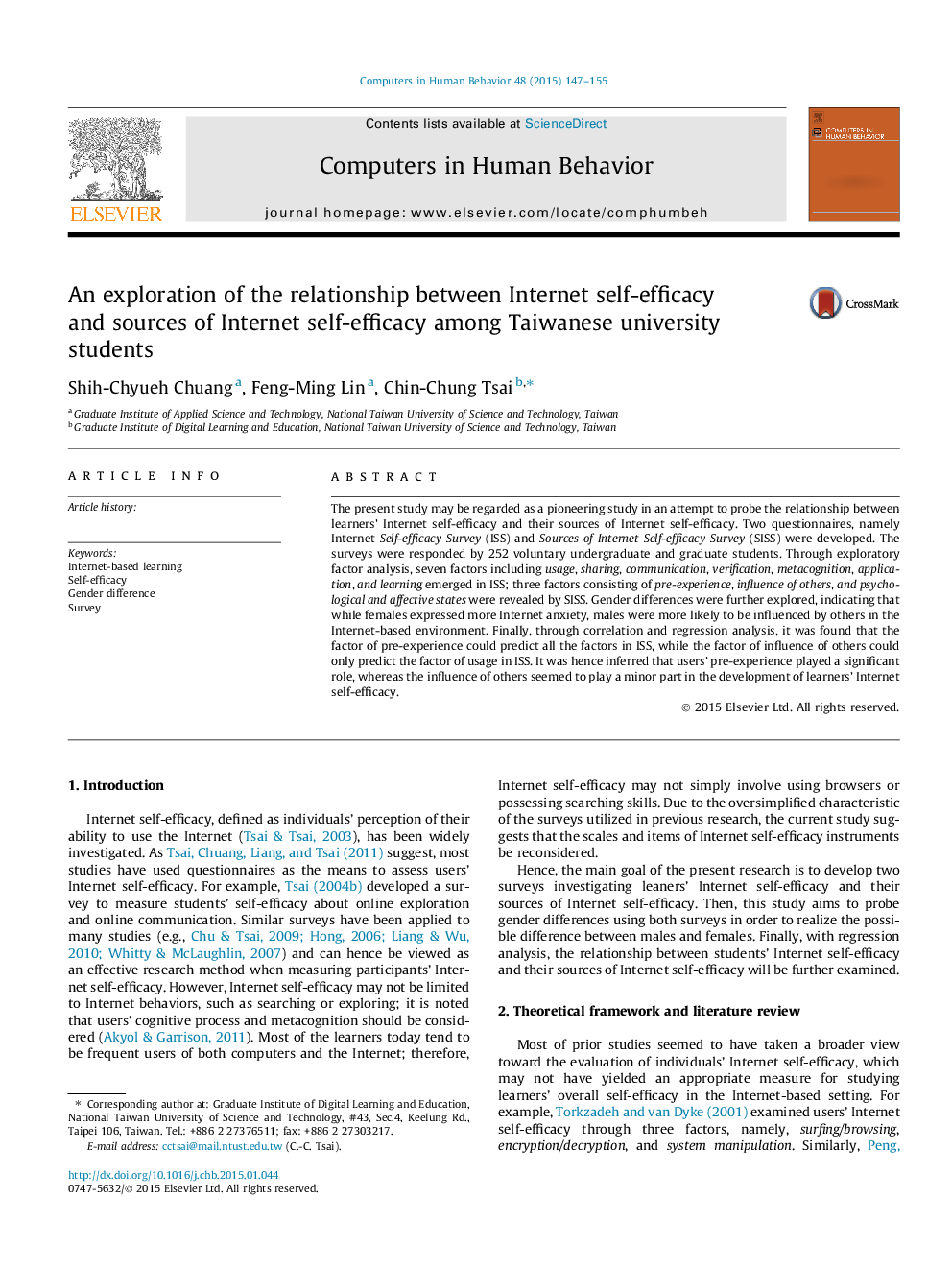| Article ID | Journal | Published Year | Pages | File Type |
|---|---|---|---|---|
| 6838302 | Computers in Human Behavior | 2015 | 9 Pages |
Abstract
The present study may be regarded as a pioneering study in an attempt to probe the relationship between learners' Internet self-efficacy and their sources of Internet self-efficacy. Two questionnaires, namely Internet Self-efficacy Survey (ISS) and Sources of Internet Self-efficacy Survey (SISS) were developed. The surveys were responded by 252 voluntary undergraduate and graduate students. Through exploratory factor analysis, seven factors including usage, sharing, communication, verification, metacognition, application, and learning emerged in ISS; three factors consisting of pre-experience, influence of others, and psychological and affective states were revealed by SISS. Gender differences were further explored, indicating that while females expressed more Internet anxiety, males were more likely to be influenced by others in the Internet-based environment. Finally, through correlation and regression analysis, it was found that the factor of pre-experience could predict all the factors in ISS, while the factor of influence of others could only predict the factor of usage in ISS. It was hence inferred that users' pre-experience played a significant role, whereas the influence of others seemed to play a minor part in the development of learners' Internet self-efficacy.
Related Topics
Physical Sciences and Engineering
Computer Science
Computer Science Applications
Authors
Shih-Chyueh Chuang, Feng-Ming Lin, Chin-Chung Tsai,
